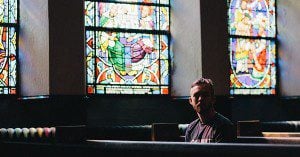Evangelical Anxieties
I grew up “in the thick of” white American evangelical Christianity in the 1950s into the 1970s and have always kept an eye on it. I have witnessed many changes there. Like others, I often wonder what has happened in white American evangelicalism. My mind automatically goes back to how I experienced it when young
In those days, most white American evangelicals had many anxieties.
One was that many of the older people remembered a time when American culture was more or less like evangelicals in terms of moral mores—relatively conservative. But the winds of change were blowing and they were becoming very anxious about that. Younger evangelicals were also becoming very anxious about their children’s exposure to things like secular humanism and the sexual revolution.
Afraid of Persecution
Another one was that many, perhaps most, evangelicals were obsessed with the “end times” and the future. Sure, Christ would return to rapture us, but the world seemed to be going to hell in a handbasket, and we were afraid of persecution.
I well remember the deep anxiety about communism among evangelicals. We celebrated America because it granted us freedom of belief and worship. That was the greatest thing about America. But we feared government and especially “creeping socialism” because were were sure those were leading toward a state in which “our faith” would be persecuted. That fear rose tremendously when Kennedy was elected president, not so much about communism as about Catholicism.
They Believe He Will Protect Them
White American evangelicals were also, by and large, anxious about increasing secularity or secularism. Many more of our neighbors seemed immune to the gospel. Public life was denuding itself of the symbols of faith in God. Entertainment was going to the dogs. All around us we saw evidence of a great retreat from God.
I think those are the deep roots of contemporary white American evangelicals’ widespread support for Trump and Republican Trumpism. Trump and his high-level supporters and colleagues SEEM to many white American evangelicals, especially the most conservative among them, rescuers from the anxieties that have lingered since the mid-20th century. I could hear a big “sigh of relief” from white conservative evangelicals—not because Trump is really believed to be one of them but because they believe he will protect them and, at least in part, turn America back around to a time when evangelical Christianity is free and influential.
We Never Talked About Fascism
If I had to elevate one of those anxieties above the others, in terms of explaining white American evangelical support for Trump and Trumpism, I think it was fear of persecution. Most non-evangelicals, and evangelicals who did not grow up in white American evangelicalism in the 1950s through the 1970s, cannot imagine how profound that fear of persecution was. We believed that insofar as “liberals” took control of government(s) we would be marginalized and even persecuted—within the criminal justice system. Communism was the fundamental threat, not Fascism. We never talked about Fascism. Little did we suspect that Fascism would become the threat, if not to “us,” then to American democracy.
*Note: If you choose to comment, make sure your comment is relatively brief (no more than 100 words), on topic, addressed to me, civil and respectful (not hostile or argumentative), and devoid of pictures or links.*














